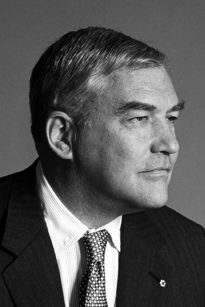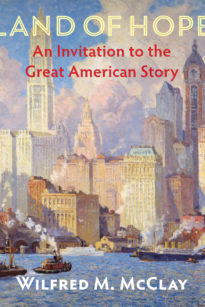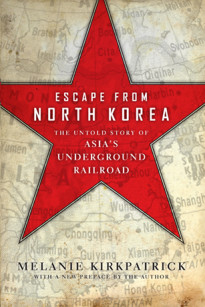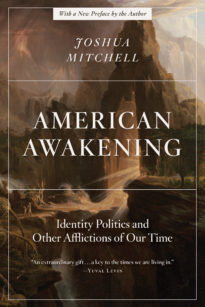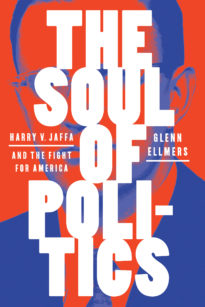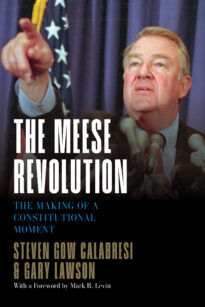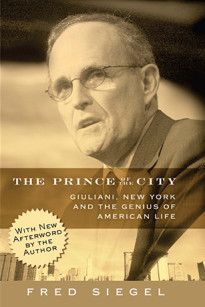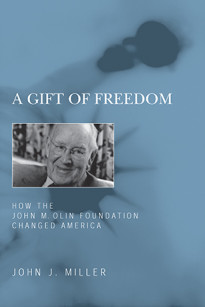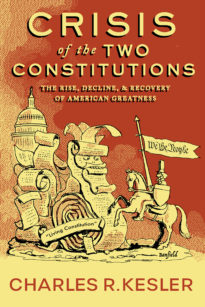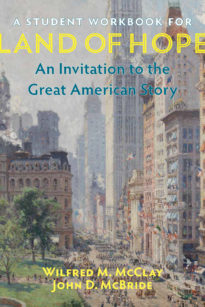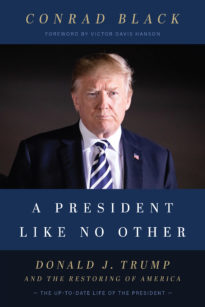Conrad Black, bestselling author of Franklin Delano Roosevelt: Champion of Freedom, Richard M. Nixon: A Life in Full, and Flight of the Eagle: America’s Rise from Colonial Upstart to the World’s Superpower, turns his attention to his friend President Donald J. Trump and provides the most intriguing and significant, but certainly not uncritical, analysis yet of Trump’s political rise. Ambitious in intellectual scope, contrarian in many of its opinions, and admirably concise, this is surely set to be one of the most provocative political books you are likely to read this year.
Free shipping on all orders over $40
A President Like No Other
Donald J. Trump and the Restoring of America
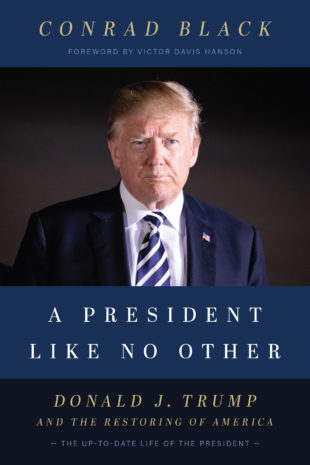
Publication Details
Trade Paper / 300 pages
ISBN: 9781641771061
Available: 8/18/2020
- Media: Request a Review Copy
- Academia: Request an Exam Copy
About the Author
Conrad Black is the author of critically acclaimed biographies of Maurice Duplessis, Franklin D. Roosevelt, and Richard Nixon. The former head of the Argus and Hollinger corporate groups and of London’s Telegraph newspapers, Black is also the founder of Canada’s National Post.
Excerpt
Unique though his political ride has been, the national traits that elevated Donald Trump are identifiable and legitimate. It is almost a cliché to repeat it, but there has never in the history of the world been anything remotely like the rise in two long lifetimes from the battle of Yorktown in 1781 to the end of the Second World war in 1945, of the American people from fewer than four million colonists and slaves to a semi continent of a nation of 140 millions producing half the war-shattered world’s economic product, deploying an incomparably powerful and everywhere victorious military, including a monopoly of atomic weapons, and a nation everywhere admired for its moral leadership, popular cultural influence and for the distinction of its civilian and military leaders. This natural culture of permanent ascent incites unstructured notions of how to achieve high office, a more enticing object as the country became more powerful in the world.
The principal reasons for the inexorable rise of America are obvious enough. Although it rebelled against the British, it inherited the rule of the common law, the English language, and the ability to occupy the temperate middle of a vast and rich continent. But even with this it might not have been a much more effective country in the world than Brazil or Australia, had it not been directed at the beginning and at the most critical stages in its subsequent history by statesmen of very great courage and ingenuity, and had it not been possible to construe mundane events as heroic watersheds, glossing over aspects where necessary to build the American mythos. The rise of America has mainly been wrought by the actions of a few individuals at decisive moments, the source and the result of the powerful American cult of individualism, a concept that Donald Trump has in his own way, reasserted.
Britain had doubled its national debt in the Seven Years War, known in North America as the French and Indian wars. Britain’s war aims were partly to expel the French from India and partly to assist Frederick the Great in building up Prussia as a rival to the Russians and Austrians and French, but mostly in order to expel France from North America and remove the French threat with which the American colonists had lived for 150 years. At the end of that war the British government judged that the Americans were the wealthiest British and that it was only fair that the Americans should pay some of the tax in retiring the war debt.
From this grew the tumultuous colonial agitation that Americans could not be taxed without voting for it themselves, which no sane people in the world would do if the money had already been spent by the taxpayers of another jurisdiction. The British government mishandled the issue, King George III ignored the advice of his most capable statesmen, William Pitt (Earl of Chatham), Edmund Burke, and Charles James Fox, as well as Benjamin Franklin. The founding impulses of the Americans were revolutionary and tax-resistant. It was generally reckoned that a third of the British population disapproved the king’s policy of suppressing the Americans, and a third of the American population disapproved the Revolution.
Unsuspectedly, the small colonial population possessed statesmen of immense ability. General George Washington, long regarded as one of the most talented officers in the British army, though he had never left North America, proved a very astute and inspiring commander moving between regular and guerrilla warfare and grasping from the beginning how to exploit the vulnerabilities of the seaborne British. Hampered by a venal and incompetent civilian leadership in the Continental Congress and with virtually no executive government, and allocated troops state by state for limited periods, Washington yet kept his army in the field for seven years, generally well back from the seacoast. This required the British army and it’s mercenaries to to plunge inland to engage with him, shedding deserters who were easily assimilable among the local population for whom they had a great affinity. (Apart from the Hessian mercenaries who didn’t care about any of it and had no great use for the British; as Machiavelli wrote, mercenaries are always liable to turn their coat anyway.)
Parallel to the valorous leadership of Washington, and if anything even more brilliantly creative, was the astonishing diplomatic feat of Benjamin Franklin. Franklin in 20 years of representing Pennsylvania and other American colonies in London in various matters, had developed a strong rapport with and enjoyed great prestige in learned and powerful British circles. He assisted the elder Pitt in choosing to seize Canada from France rather than the French West Indies which appeared to have a greater immediate economic value.* When he returned to Europe in 1776 as the minister to France of the revolutionary American government he swiftly gained the assistance of the absolute French monarchy, (where no parliament had met in 165 years, since the young Richelieu dismissed the Estates General in 1614).France, a colonial power, and a regime that was strained financially, was yet persuaded to go to war in vengeance against Britain and in favor of republicanism, secessionism and democracy.
As the years passed British patience with the war declined; it could not possibly keep naval forces in the New World adequate to blockade the entire American coastline while it had to protect the home islands from a French invasion, and it could not possibly maintain there, the ground forces capable of suppressing a popular revolt of more than one million people. Washington did the necessary to keep his army viable and potentially dangerous, exploited the opportunities that arose for sudden attack and saw immediately the potential to win the war when it became possible to blockade the main British force into the fort at Yorktown.
The third great figure in the success of the American Revolution, after Washington and Franklin, and one of the greatest and most elegant propagandists in history was Thomas Jefferson. From this somewhat grubby tax war, and without a unique language and culture to support a new nationality like the nation states of the old world, (the English spoke English, the French French, the Dutch Dutch, Spanish Spanish, and so forth), the Americans had to try something different.
Led by the rousing wordsmith Jefferson (and the even more effusive Thomas Payne), the imaginative theory was confected that they were bringing the light of human freedom to the world. No matter that at the end of the Revolutionary War the Americans had no more rights than they had had before other than that their government was resident in their own territory. They had no more rights than those exercised by the English, as well as most of the Swiss, Dutch and Scandinavians. But America was proclaimed to be a new order of the ages and a society where it was held to be “self-evident that all men are created equal.”
